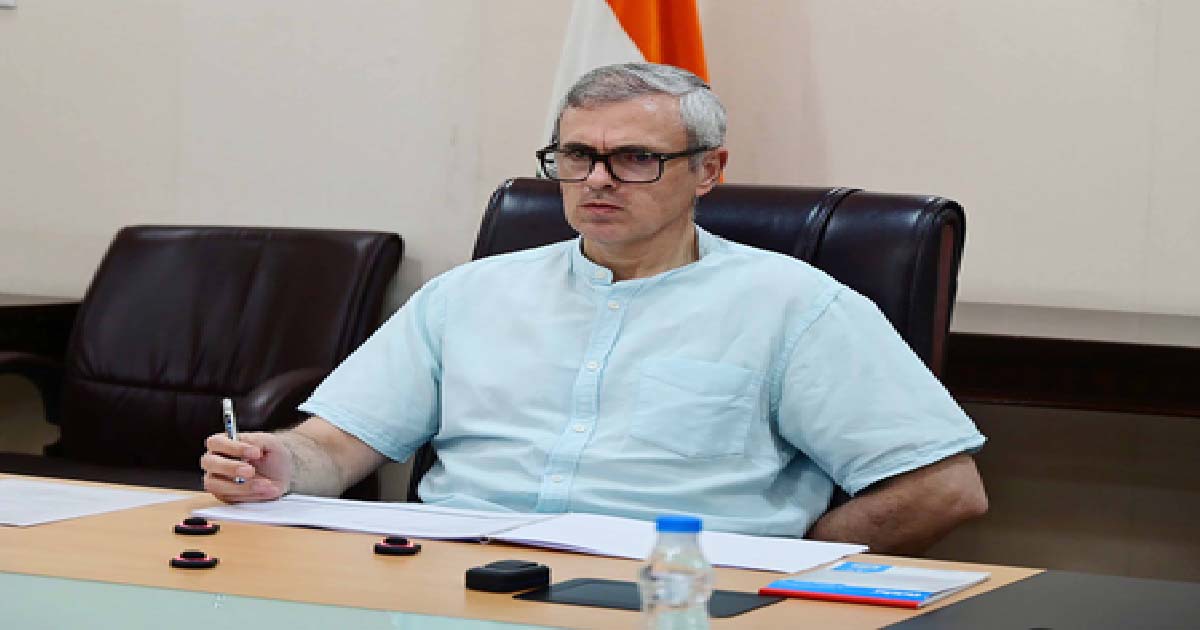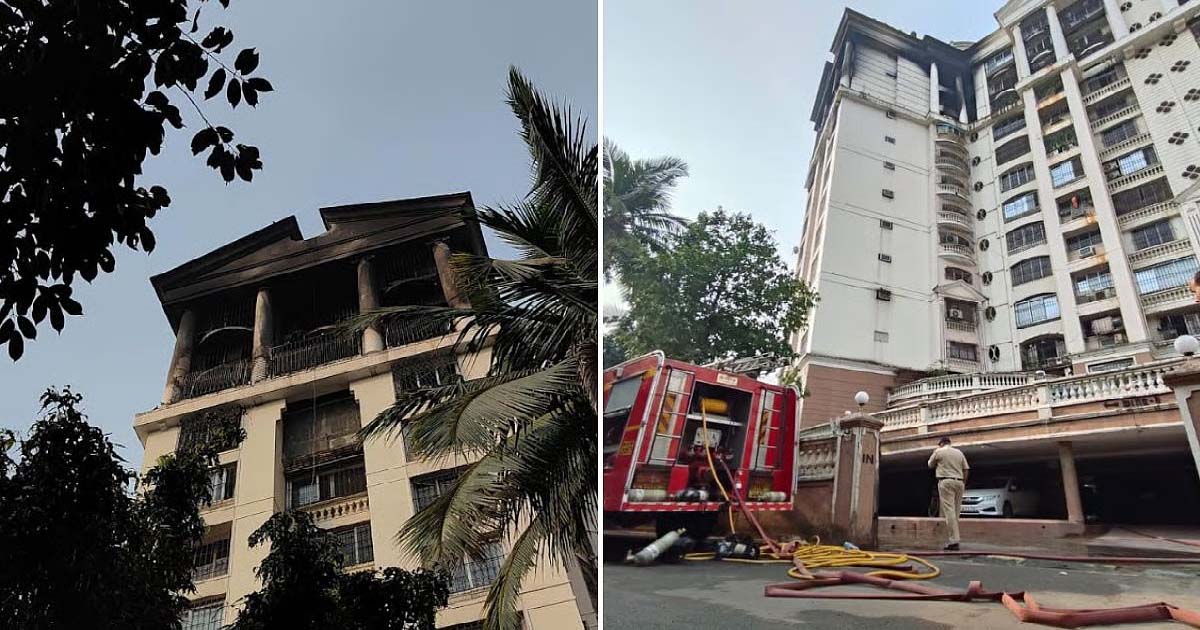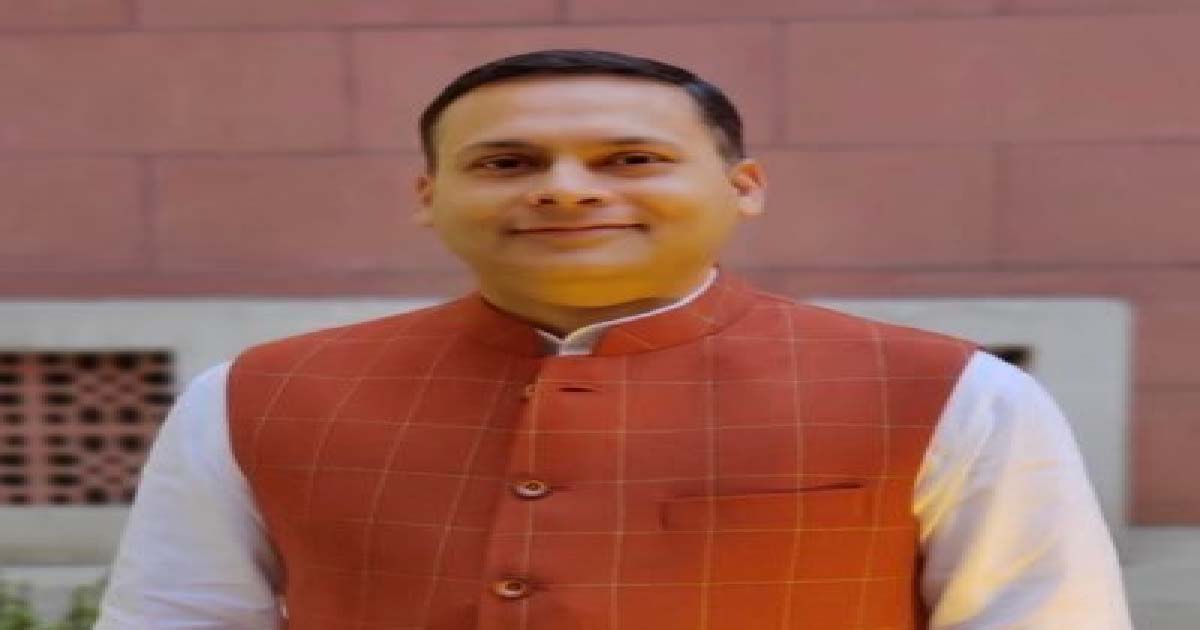National News
Omar Abdullah govt holds special cabinet meet in Pahalgam

Srinagar, May 27: The Jammu and Kashmir government on Tuesday held a special cabinet meeting in Pahalgam tourist resort to convey a powerful message against terrorism and violence in the aftermath of the cowardly terror attack that claimed 26 lives on April 22.
The choice of the station is to express solidarity with the residents of the tourist town, which has experienced a sharp decline in footfall since the terror attack on April 22.
More important than the agenda on the table of the cabinet meeting is the significance of the meeting’s symbolic communication to anti-national and anti-social elements that violence has no place in Jammu and Kashmir.
This is the first cabinet meeting being held outside the capital cities of Srinagar and Jammu since the Omar Abdullah-headed government took office in October 2024.
During his first stint as the chief minister of the erstwhile state of Jammu and Kashmir from 2009-14, Omar Abdullah had held cabinet meetings in remote areas like Gurez, Machil, Tangdhar of north Kashmir and Rajouri and Poonch areas of Jammu region.
The decision to hold a special cabinet meeting comes two days after CM Omar Abdullah on Saturday proposed a dual approach to resuscitate the Jammu and Kashmir tourism sector, severely impacted by the Pahalgam terror attack, urging the Centre to mandate PSUs to hold meetings in Kashmir and to convene parliamentary committee meetings there.
He made this appeal at the governing council meeting of the NITI Aayog under the chairmanship of Prime Minister Narendra Modi.
Sources indicate that the chief minister and his cabinet colleagues will also meet with tourism stakeholders in Pahalgam to gather suggestions on how to revive tourism in the Valley in the aftermath of the April 22 attack.
Holding the cabinet meeting in Pahalgam is seen as a deliberate effort to send the message that there is no cause for concern and that Kashmir remains a safe destination for tourists.
National News
Vashi’s Raheja Residency Fire Tragedy: Case Registered Against Building Manager & Fire Service Contractor After 4 Deaths, Including 6-Year-Old Girl

Navi Mumbai: A case has been registered against two people in connection with the fire that broke out in Vashi’s Raheja Residency, which killed four residents, including a 6-year-old girl. The incident occurred on October 21 when the blaze, which started around 12.40 a.m. on the 10th floor, quickly spread to the 11th and 12th floors.
a case has been registered at Vashi Police station against Sanjay Ubale, Raheja Residency manager and Pradeep Patil of Life Save Fire Service. The report stated that the building had appointed Life Save Fire Service to carry out fire prevention measures, while Ubale, as the manager, failed to ensure that the work was being completed, leading to the tragic fire that claimed the lives of innocent residents.
The four deceased were identified as Vedika Sundar Balakrishnan (6), Kamla Hiralal Jain (84), Sundar Balakrishnan (44), and Pooja Rajan (39) — all residents of Raheja Residency. While several other residents were injured due to the fire.
Among the injured members were Manabendra (69), Malika (58), and Ritika Ghosh (39) from Room 1106; Bhavna (49), Mahavir (51), and Krish Jain (21) from Room 1005; Nirmal (53) and Mehul Jain (32) from Govind Complex; and Damayanti Agrawal (80) and Sumanti John Topno (18) from Room 1105.
The fire brigade official said the situation was brought under control after several hours of firefighting, followed by extensive cooling operations. According to the Navi Mumbai Municipal Corporation (NMMC) Fire Department, several fire engines from Vashi, Nerul, Airoli, and Koparkhairane stations were rushed to the spot.
National News
BJP dares CM Mamata to protest against DMK MP’s ‘derogatory’ remarks about Vande Mataram writer

Kolkata, Dec 9: The Bharatiya Janata Party (BJP), on Tuesday, challenged Chief Minister Mamata Banerjee to speak against the Dravida Munnetra Kazhagam (DMK) MP A. Raja, for making baseless allegations linking Bankim Chandra Chattopadhyay, Vande Mataram’s composer and legendary Bengali writer, to past communal tensions in the state.
BJP had raised the question whether Mamata Banerjee would dare to speak against Raja, considering that both Trinamool Congress and FMK are part of the opposition Indian National Development Inclusive Alliance (INDIA).
“Mamata Banerjee must speak up against the INDI Alliance, of which she is a part, as it continues to denigrate and defile the rich legacy of Rishi Bankim Chandra Chattopadhyay. Is TMC’s alliance with the DMK and Congress more important than the pride of West Bengal? Shame on her,” observed BJP’s Information Technology Cell Chief and the party’s central observer for West Bengal, Amit Malviya, in a social media statement.
Earlier, the BJP had also issued a statement accusing Raja of “irresponsibly” linking West Bengal’s communal tensions to Bankim Chandra’s writings and thus “twisting facts” in an attempt to paint him as “regressive”.
“Raja’s accusation that Bankim Chandra opposed women’s education and social reform is deeply misleading. Bankim believed real reform must arise from a renewed and awakened Hindu society, not just from superficial legislation – a difference in approach, not in values. Through his novels, Bankim Chandra introduced strong, layered, assertive female characters and consistently encouraged women’s education,” the statement issued by the BJP read.
The BJP also claimed that Mamata Banerjee should answer whether West Bengal’s pride was negotiable for power.
Incidentally, the BJP’s observations come just a couple of hours after CM Mamata, earlier in the day, criticised Prime Minister Narendra Modi over his inadvertent reference to Bankim Chandra Chattopadhyay as “Bankim Da” during his speech in Parliament.
The Prime Minister immediately amended his words and said he would henceforth address Chattopadhyay as “Bankim Babu”.
Mumbai Press Exclusive News
When will the dilapidated roads in Bhiwandi city be repaired? Raees Sheikh asked a question in the Maharashtra Assembly, expressing concern over road accidents.

Nagpur: Samajwadi Party MLA from Bhiwandi East Raees Sheikh raised the issue of dilapidated roads, debris lying everywhere and increasing road accidents in Bhiwandi city on the first day of the ongoing winter session of the Maharashtra Assembly in Nagpur. Raees Sheikh asked in the Maharashtra Assembly that when will the roads be constructed in Bhiwandi and when will the road accidents due to bad roads be controlled.
Raees Sheikh said that looking at Bhiwandi city, it seems that there is debris lying everywhere in the entire city and there is no explanation as to when will the roads be constructed in Bhiwandi city and where will the funds for its work come from? Raees Sheikh said that the Chief Minister had called a meeting regarding the construction of roads in Bhiwandi city and in this meeting the Chief Minister had formed a committee which includes the Municipal Corporation Commissioner and MMRDA officers and for the construction of these roads the Chief Minister had said that a proposal of Rs 1,000 crores would be presented. Raees Sheikh said that the people who are being affected during the development work and whose structures are being affected should get compensation from the government. Raees Sheikh also stressed that a policy on this should be made in the current meeting and at the Mumbai level and the government should also clarify by when the roads will be constructed? Raees Sheikh raised the issue of road accidents in the assembly
Raees Sheikh, while raising the issue of dilapidated roads in Bhiwandi city in the Maharashtra Assembly, said that recently, Dr. Omar was taking his five-year-old daughter home from school in Bhiwandi city, during which his five-year-old daughter Khadija died in a tragic road accident while he was also seriously injured. Apart from this, a person named Raj Singh also lost his life due to a road accident. He said that the increasing number of road accidents due to dilapidated roads and potholes in Bhiwandi city is a matter of great concern, so the government should explain when these accidents will be controlled and when the roads will be constructed.
-

 Crime3 years ago
Crime3 years agoClass 10 student jumps to death in Jaipur
-

 Maharashtra1 year ago
Maharashtra1 year agoMumbai Local Train Update: Central Railway’s New Timetable Comes Into Effect; Check Full List Of Revised Timings & Stations
-

 Maharashtra1 year ago
Maharashtra1 year agoMumbai To Go Toll-Free Tonight! Maharashtra Govt Announces Complete Toll Waiver For Light Motor Vehicles At All 5 Entry Points Of City
-

 Maharashtra1 year ago
Maharashtra1 year agoFalse photo of Imtiaz Jaleel’s rally, exposing the fooling conspiracy
-

 National News1 year ago
National News1 year agoMinistry of Railways rolls out Special Drive 4.0 with focus on digitisation, cleanliness, inclusiveness and grievance redressal
-

 Maharashtra1 year ago
Maharashtra1 year agoMaharashtra Elections 2024: Mumbai Metro & BEST Services Extended Till Midnight On Voting Day
-

 National News1 year ago
National News1 year agoJ&K: 4 Jawans Killed, 28 Injured After Bus Carrying BSF Personnel For Poll Duty Falls Into Gorge In Budgam; Terrifying Visuals Surface
-

 Crime1 year ago
Crime1 year agoBaba Siddique Murder: Mumbai Police Unable To Get Lawrence Bishnoi Custody Due To Home Ministry Order, Says Report












